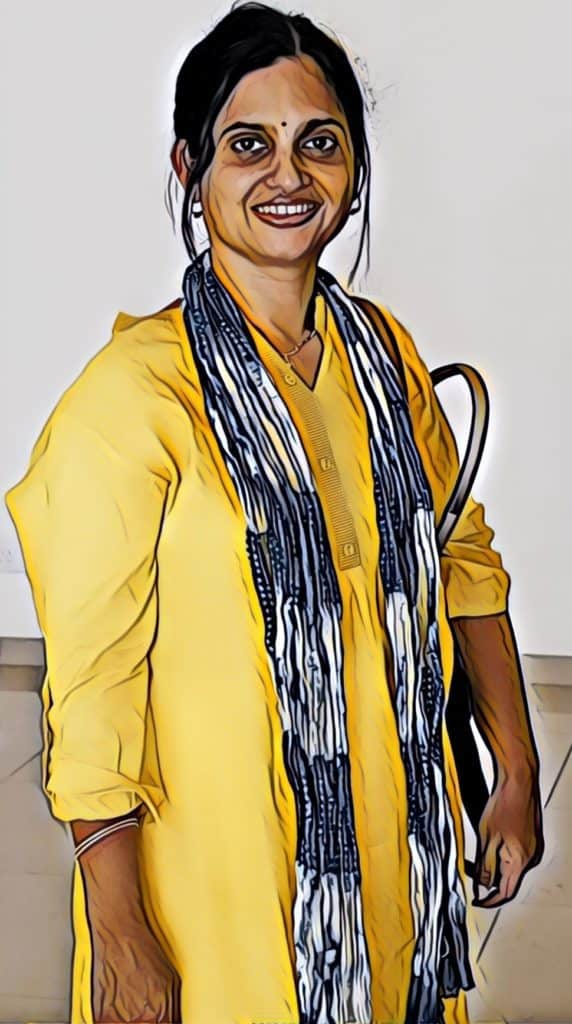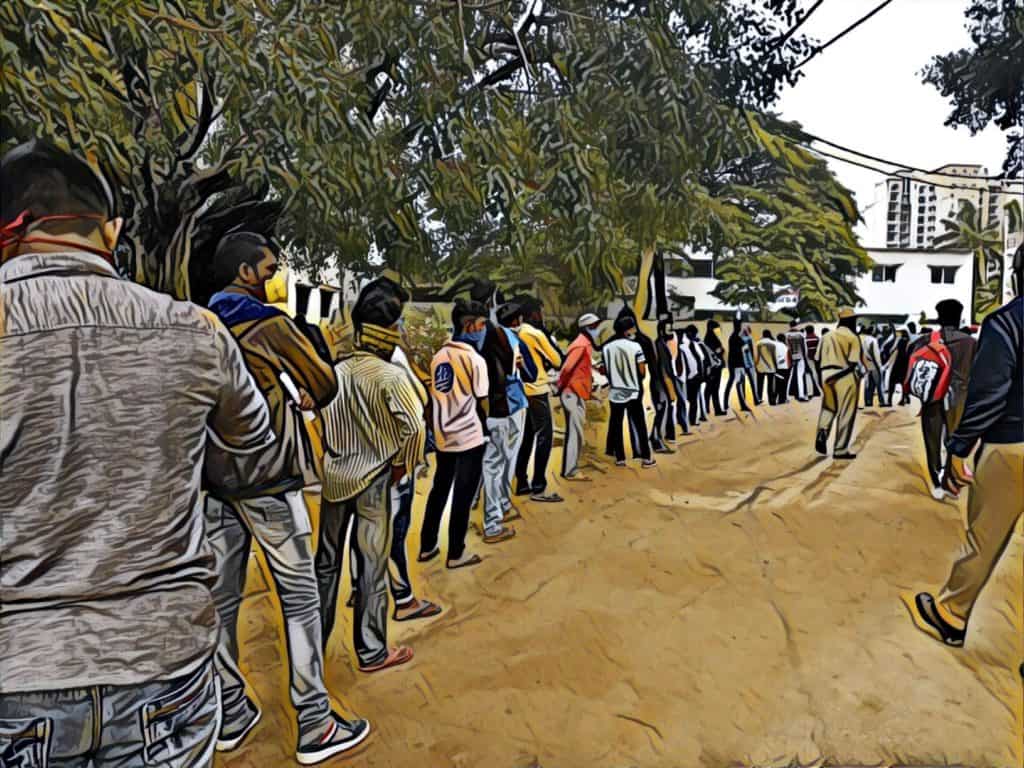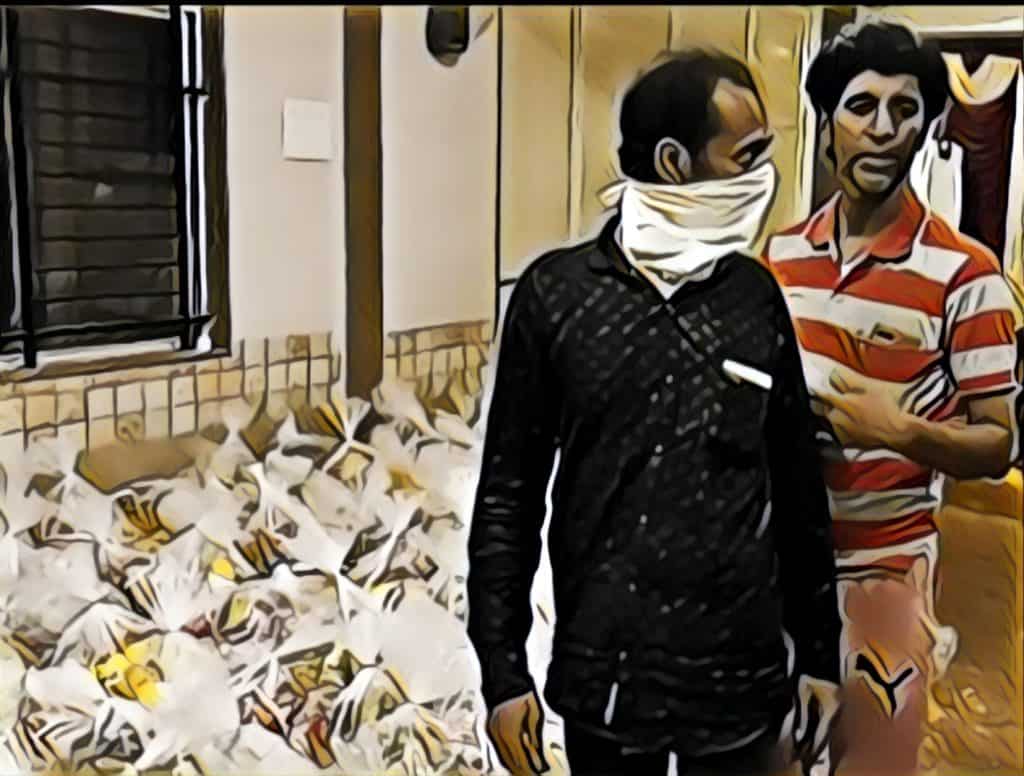The Covid-19 crisis has forced many institutions to up their game and work round the clock. Their resilience and efficiency in crisis management has been thoroughly tested over the past few months. The police is one such institution that has been in the forefront. Pushed as it was, into the frontlines of an unfamiliar task – policing a contagion – the institution received as much flak as praise, in varying degree.
Relief volunteers who plunged into food and ration distribution, fund-raising and working with migrant labourers, were possibly at a vantage point to assess the role of the police at the height of the lockdown. This article is based on the experiences of a few volunteers, from the period between the last week of March till the end of May.
A broken system
Lalitha Mondreti, a relief volunteer worked closely with the police in South Bengaluru. She was coordinating travel arrangements for migrant labourers who were trying to return to their homes in the Shramik trains.
Lalitha and a friend saw migrants queuing up in large numbers in nearby police stations, waiting for information about the availability of trains. They decided to help them out by providing them with food while they stood in a queue. “People were happy to receive the food, but they wanted information”, said Lalitha, noticing the anger and frustration of the migrants.
At that time, Lalitha did not have any rapport with the local police and hence could not directly approach them. Along with her team, Lalitha took some time to talk to the migrants and understand their issues so that they could better present it to police authorities.
Then they approached the police and asked how they could help as citizen volunteers. After this meeting, some citizen groups started helping out the police with registration of migrant workers on the Seva Sindhu platform, and some with distribution of ration.
This still did not solve the problem of the dearth of information regarding the Shramik trains. The police were supposed to call up registered migrants and inform them about departures. However, the police themselves received information regarding the next day’s trains only on the previous night. And, they were too overworked to call 300 people and relay the information.

“I won’t blame the police since the whole system is broken”, said Lalitha Mondreti, a citizen volunteer.
As a result, the migrant workers ended up walking 10 km to the police station everyday, just to receive information about the train availability. Lalitha took up the responsibility of informing the migrants when she received information about the trains and assured the migrants that they would not have to walk such long distances every day.
Soon, as a rapport developed between her team and the police, the latter updated Lalitha about the train situation and her team would call up the migrant workers every night.
Stepping into many roles
Breaking the ice and establishing a rapport made the law-keepers go beyond the call of duty and turn into sympathetic volunteers themselves in many instances.
“At first they (the police) were sceptical of volunteers who were helping, but soon they genuinely began helping us out,” said Sharoon Sunny, another citizen volunteer.

Photo: Lalitha Mondreti
Sharoon praised the police for their cooperation. She runs an after-school programme called ‘The Real School’, which caters to the children of migrant labourers. In her experience, the police came as a blessing during distributions in densely populated areas.
The police went out of their way to identify families who were in dire need of food and reported the number so that Sharoon could be better prepared. Sharoon described distribution time as chaotic and charged with emotions – anger, grief, helplessness.
The police, she said, were quick to provide emotional support during such times too. “They even stepped into the shoes of a counsellor.”. If elderly women got distressed while waiting in lines, the police offered to console them.
Mohammed Ibrahim Akram, a co-director of restaurant chain Beijing Bites and a citizen volunteer, approached deputy commissioner of police Chetan Singh Rathore on the very first day of the lockdown and obtained permission to move around. As a result, he faced no problem from the police during distribution and his commutes.
The sorry side
Malarvizhi, a volunteer working with ActionAid, described her experience on the first day of food distribution. They were prepared with 500 packets of food but a thousand families turned up. Her team had sought prior police protection, but on that day the police turned up very late.
As soon as they arrived, the police asked her team to stop the distribution since people were crowding. Malarvizhi said that the whole purpose of seeking police protection was for crowd regulation. But they were helpless in the crowded area. “I still remember the faces of people who had to go back empty handed”, she said.
Khizer Alam, a volunteer with Swaraj Abhiyan, also did not have a pleasant story. Khizer was working mainly in the Padarayanapura area. Given that the area witnessed incidents of violence from the people as they resisted quarantine measures, the police were extra wary.

Khizer said that the police would not allow volunteers to distribute food even though they had an NGO pass that allowed them to do so. He related an incident when he was prevented from distributing the meals even after he told them that he had painstakingly arranged for the food and that it would all get spoiled. “I left the packets of food there and asked him to throw it away” Khizer said, adding “because I did not have the heart to do it.”
The Bengaluru police force has been instrumental in maintaining order and facilitating processes throughout the crisis. But they have had their shortcomings. Intense workload during this unprecedented crisis could be a reason. But that cannot absolve the lack of empathy and sensitivity exhibited by a few members of this institution.
Excellent article ?. Has brought forth both sides of the issue very well
Where on earth we could still find such people …coz three days religion /caste is at every stage . Hatts to you ppl who have proved humanity still exits on earth n have shamed the ppl who use religion as weapon to spoil the serenity n peace among ppl. May God almighty bless you all abundantly n help you all in your future endeavours. Takecare.
ಒಳ್ಳೆಯ ಲೇಖನ. ನಮ್ಮ ಪೊಲೀಸರು, ಬೆಂಗಳೂರಿನಲ್ಲಿ ಮಾತ್ರವಲ್ಲದೆ ಕರ್ನಾಟಕದ ವಿವಿಧ ಭಾಗಗಳಲ್ಲಿಯೂ ಶಾಂತಿ ನಿರ್ವಹಿಸಲು ಬಹಳ ಶ್ರಮಿಸಿದ್ದಾರೆ
Very well written, sharing the insights of the people, the volunteers and about the police. It also brings out that in such situations both the police and the public need help of additional people who come forward as volunteers to assist on both sides